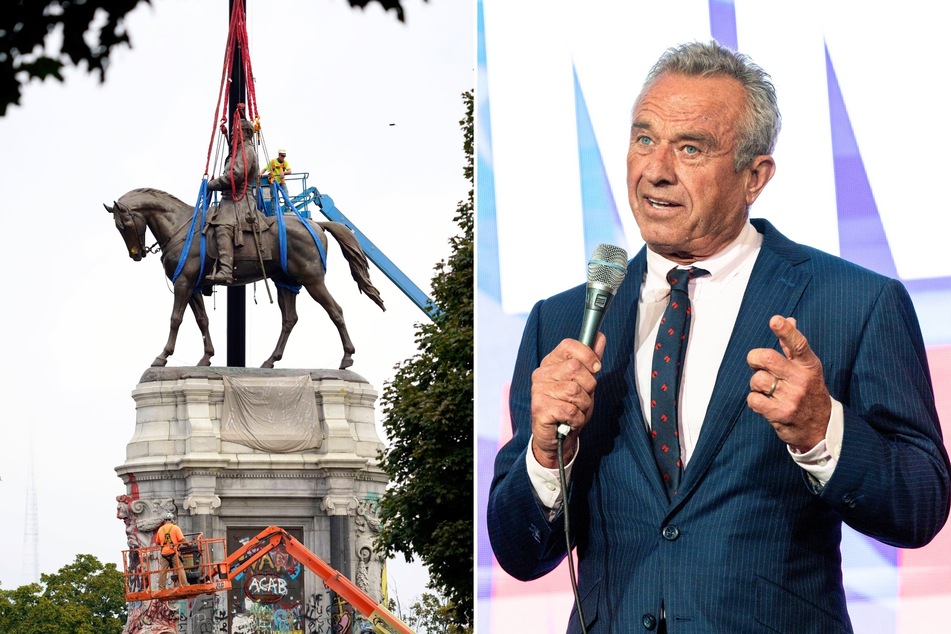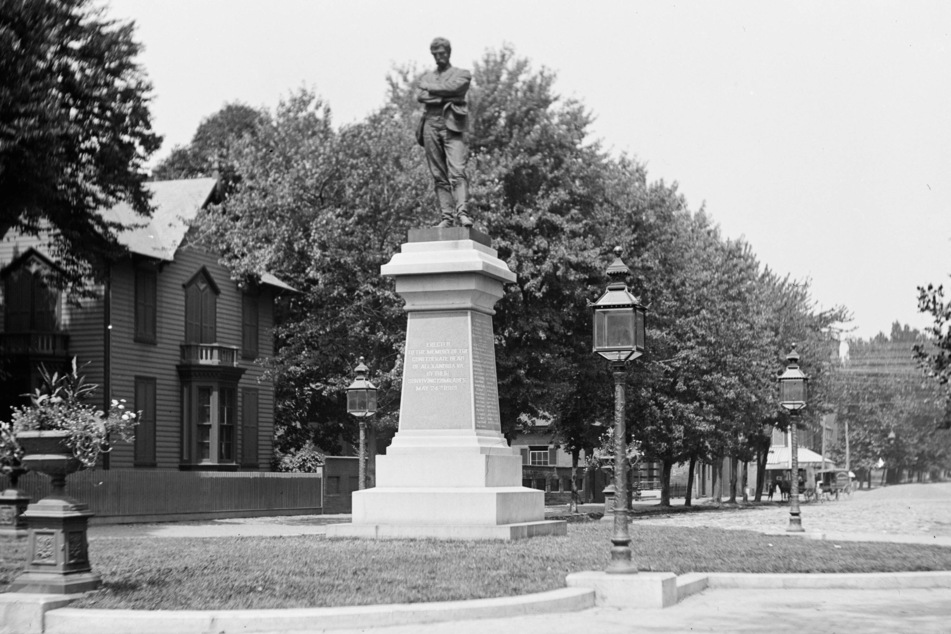Robert F. Kennedy Jr. defends Confederate statues and claims removal is "destroying history"
Los Angeles, California - In a recent interview, Independent presidential candidate Robert F. Kennedy Jr. defended Confederate statues and argued that removing them is an act of "destroying history."

RFK did a lengthy interview with conservative commentator Tim Pool last Friday, where he argued that we should "celebrate who we are" as a country by allowing the statues to remain standing.
He noted that there were "heroes in the Confederacy who didn't have slaves" and praised Robert E. Lee, a slave owner and top Confederate general, for his "extraordinary qualities of leadership."
"I have a visceral reaction against the attacks on those statues," he said. "If we want to find people who are completely virtuous on every issue throughout history, we would erase all of history."
"We need to be able to be sophisticated enough to live with, you know, our ancestors who didn't agree with us on everything, and who did things that are now regarded as immoral or wrong, because... maybe they had other qualities," he added.
The dishonest arguments in favor of Confederate statues

Following the murder of George Floyd in 2020, activists in states across the country called for the removal of Confederate statues near federal buildings, arguing that they represent a celebration of the country's dark, racist past.
The efforts have received heavy backlash, notably from critics on the right, who claim the confederacy is a part of white Americans' "heritage."
Similar to Kennedy, critics of the efforts and pro-confederacy activists tend to ignore the details of slavery or argue that the Civil War was not fought over slavery, which is simply untrue.
Another fact that is regularly ignored is the intentions behind erecting the statues in the first place. According to the Atlanta History Center, the "strategic placement" of the statues that were erected from the 1890s through the 1930s, which included the Jim Crow era, was done so as "an official and permanent affirmation of the Lost Cause of the Confederacy."
"Lost Cause ideology promoted the idea that the Confederacy achieved a moral victory in the Civil War," the AHC explained. "The belief system denied the role of slavery as the primary cause of the war and ignored freedom as an achievement of US victory."
"The Lost Cause tries to delete the African American perspective from the historical narrative," the center added.
Cover photo: Collage: IMAGO / USA TODAY Network & SOPA Images

